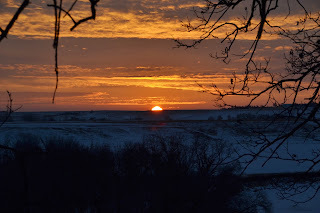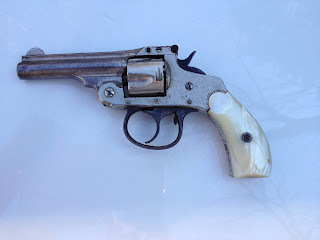Friendship
Reading Thucydides
Last year I led an online discussion of Thucydides. It stopped when I got busy with other pursuits. Thinking of starting that up again, with two tracks: One group that starts at the beginning of Thucydides; another that picks up where the first group left off and reads all the other texts written in the context of the Pelopponesian War.
Addendum: I’d like at least one of these groups to meet in a quiet library, or an internet-free cabin in the wilderness, or some other place where we would be uninterrupted, could talk face-to-face. The feel of paper in our hands, pens and notepads on the table. The smell of books. A shared meal, and glasses raised in salute of good questions, thoughtful insight, words that call for moments of silent reflection.
No grades, no reporting afterwards. Just better familiarity with ideas that have changed our world, and, best of all, new friends.
The Music of the Spheres: The Sun Is A Morning Star
 |
| The Morning Star, Good Earth State Park (SD), December 2013 |
That may sound odd, but it arises from my conviction that philosophy needs labs. I call it my "Music of the Spheres" project, in which I invite them to consider what it would have been like to be Thales (who was one of the first to predict a solar eclipse), gazing at the night sky and thinking about the laws that seem to guide the motions of the celestial bodies.
The students are given specific instructions and they must come up with a clear research project that can be accomplished using only the tools available to ancient astronomers.
For me, the best part of the class comes at the end when I read their work, and I get to see their offhand comments, like this:
"I saw the Milky Way and its Great Rift for the first time."My heart leapt when I read that one. This next one didn't make my heart leap, but it did make my heart glad, because it too is an important discovery:
"Stargazing is much more fun with a friend."We live beneath these skies but so rarely do we lie on our backs beneath them and gaze upwards. Rarely do we lift our eyes to the heavens to see what is there, and when we do, we are quick to turn away in boredom, as though it were a small thing to gaze into the greatest distances.
If you don't know what planets are visible right now; if you can't quickly identify a few constellations; or if you aren't sure what phase the moon is in, why not go outside and have a look? And why not share the moment with a friend?
The heavens are not yet done revealing themselves to us, and "the sun is but a morning star."
Safe and Sound: Guns, Fear, and Virtue
So again, what do guns do for us? It's probably true that in many circumstances guns make us safer, or at least make us feel safer, and that's not unimportant. But I do wonder whether they make us better people. I don't think this question is easily answered. It's not hard to imagine someone developing great skill, self-control, and confidence through target-shooting, and I've known police officers who regarded their guns as tools that helped them to make their communities better places. But this passage from Kerouac offers another possibility. Kerouac's protagonist Sal Paradise (Kerouac's fictionalized autobiographical persona) describes what it was like to be alone in San Francisco, thousands of miles from home:
“I tried everything in the books to make a girl. I even spent a whole night with a girl on a park bench, till dawn, without success. She was a blonde from Minnesota. There were plenty of queers. Several times I went to San Fran with my gun and when a queer approached me in a bar john I took out the gun and said “Eh? Eh” What’s that you say?” He bolted. I’ve never understood why I did that; I knew queers all over the country. It was just the loneliness of San Francisco and the fact that I had a gun. I had to show it to someone. I walked by a jewelry store and had the sudden impulse to shoot up the window, take out the finest rings and bracelets, and run to give them to Lee Ann. Then we could flee to Nevada together. The time was coming for me to leave Frisco or I’d go crazy.”*
 |
| "I had to show it to someone." |
Hard times can make us wary. Another novel, Steinbeck's Of Mice And Men, comes to mind here, another novel about men drifting across America, searching for an elusive dream. When Steinbeck's iconic drifters Lennie and George show up at a farm to look for work, the man who hires them remarks on how unusual it is for men to care for one another as they do:
"Slim looked through George and beyond him. 'Ain't many guys travel around together,' he mused. 'I don't know why. Maybe ever'body in the whole damn world is scared of each other.'"**
Maybe so. If you know the novel, you know the complicated ways guns, trust, love, and fear figure into it. If you don't, I won't spoil it for you.
Nor will I try to sort out what our laws about guns should be. Not here, anyway, because something else is weighing on my mind even more right now. The question of laws, and of safety, is important. But so is the matter of being not just safe, but sound.
We certainly need better laws; we always do. Just as importantly, we need to become better people. People who “travel around together” in difficult times, because it is better to do so than to spend our lives scared of the whole damn world.
*Jack Kerouac, On The Road. (New York: Penguin, 1991) 73.
** John Steinbeck, Of Mice And Men. (New York: Penguin, 1994) 37.
The Idolatry of Fear
Now: when fear becomes the guide for our actions, we should ask whether that fear deserves to be at the center of our attention.
Because what resides at the center of our attention starts to shape us. I don't mean it remakes us completely. I mean that what we mentally caress and cherish will affect our ethical decisions. The inward life has outward consequences.
Some fear is prudent. It is prudent not to stand on mountain ridges or under trees during thunderstorms. But if we live in constant fear of lightning, something has gone wrong. Either we live in the wrong place, or lightning has taken too central a role in our minds. Lightning becomes a monster, a demigod, a perpetual danger that stunts our growth and keeps our heads down.
The same could be said when we fear our neighbors: either we live in the wrong place, or we give too much credence to potential dangers and crowd out from our consciousness the potential joys of human fellowship. So our neighbors become monsters and we become their victims, and we worship them as fearful gods whom we come to despise.
What is the antidote to the idolatry of fear? Someone once said "perfect love drives out all fear." If I can conceive of my neighbor not as a monster but as someone worth loving--even to a small degree--then I have begun to let love -- philia, agape* -- dwell at the center of my consciousness. And I can begin to lift my head, just a little.
****
* Philia can mean "love," or "friendship." The latter books of Aristotle's Nicomachean Ethics give a thoughtful treatment of philia. Among his insights there, Aristotle says that where there is philia, there is no need for laws. Like philia, the word agape can be translated as "love." Charles Peirce used this word to describe the kind of love that seeks the good of the beloved (you can see more here and also in the Gospel of John) and distinguishes this from eros, the love that seeks the good of the lover.